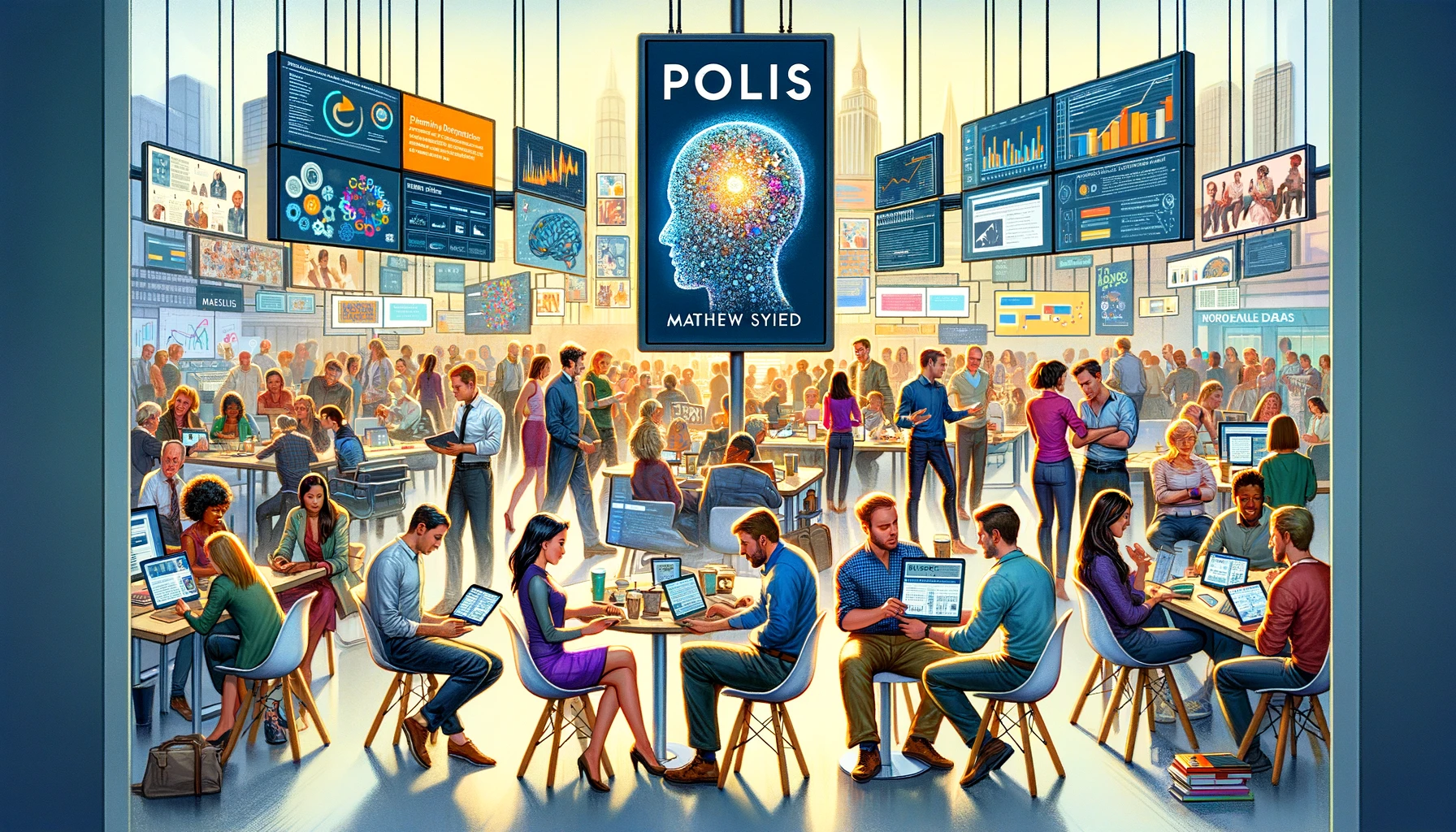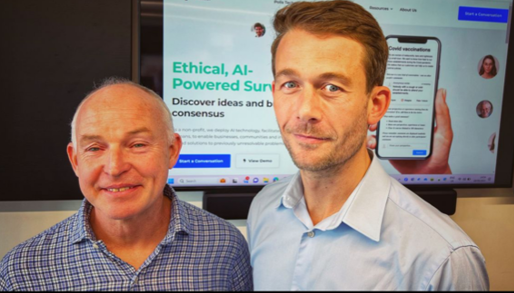Harrogate speaks: 23,000 votes in 7 days
An online conversational tool has been rolled-out in Harrogate by local lawyer, Andrew Gray. It is called Polis. Polis was developed in Seattle and is already being used around the world, including by two Government departments and by the Government of Taiwan.
Social media and online polls can be useful, but they can also create a skewed view.
- Many people are reluctant to express a view online for fear of being shouted down or cancelled; many people are fearful of being seen as having a different view to the majority.
- The outcome of traditional polls is distorted by those who commission the poll.
Polis works in an anonymous way, allowing individuals to not just respond to a question, but also then add to the conversation by posing their own statements for others to respond to. This means that a conversation forms, with a greater depth of understanding being developed. It means that even if the wrong question was initially asked, the Polis then adapts as people contribute.
Harrogate lawyer, Andrew Gray, of Truth Legal, has brought Polis to Harrogate. Andrew has launched the non-profit, Crowd Wisdom Project, through which he will run these conversations on behalf of organisations, charities and businesses.
Andrew Gray said:
“From campaigning for the Conservative Party to being involved with the Labour and Liberal Democrats, I have forever been fascinated by politics. But like many people, I struggle with the tribal element of party politics. I don’t like how politics is conducted on social media. We need to be kinder to each other. We now live in a world where people have complex, multi-layered personalities. Polis thrives on complexity, finding consensus points within a large number of diverse people. It is the tool of our age!
Polis is a system for gathering, analysing and understanding what large groups of people think in their own words, enabled by advanced statistics and machine learning. For many years now, Polis has been successfully road-tested in Taiwan, quelling antagonism and helping policy-makers to build sensible and well-supported policies.
Elections are too infrequent to give law-makers and policy-makers any idea of what the people want. On national issues, polling companies and focus groups provide the Government with some limited data. However, on a local level, elected officials and officers have few tools for listening to what the people want, leading to a disconnect with decisions and a disengagement from politics. Polis cures this problem.
Platforms such as Twitter or Facebook often do not reflect where the people are on issues. Local media and decision-makers are often fooled by those who shout the loudest, or have the greatest resources.
Take the thorny issue of the Harrogate Gateway. Does anyone really know what the people of Harrogate think? We know what pressure groups say, and they are of vital importance to our democracy. But what does everyone else think and are their better solutions? Polis uncovers previously hidden wisdom.
First Harrogate Polis Conversation
Between 18 and 24 January, the Crowd Wisdom Project conducted a Polis in Harrogate regarding the Gateway Scheme. During this time, 465 voters voted 23,733 times, with the average voter voting 51 times. In total, voters submitted 223 statements for others to vote upon. Analysis by our data scientist, Anthony Dixon, of the 23,733 votes, was as follows:
Areas of strong consensus
More buses and a park and ride are required to reduce traffic around town.
The scheme requires more effort to integrate trees and other flora.
Consultation on council schemes should be improved, both in quantity and in tone.
Areas of weak consensus
| Strong anti-proposal views with some agreement from pro-proposal group | Strong pro-proposal views with some agreement from anti-proposal group |
| NYCC should experiment with the road configuration before deciding. Most of the traffic comes at peak commuter/school times and is passing though rather than visiting town. This proposal will not help that, but a by-pass would. | An attractive town will encourage people to shop. People will cycle if it is safe to do so. All local urban streets should be 20mph with traffic calming. |
Polis can have many applications. In the world of politics, our voting system is too rigid, with too many people disengaged from it, with parties pitted against each other as if at war. We all know that the best conversations are when people listen, learn and, often, adapt their positions. Polis facilitates such a conversation, but on a large scale.
Local businesses are already using Polis already to define company strategy. The anonymity factor allows junior staff and people who are shy or are unfamiliar with speaking up, a real voice, whilst not cancelling free speech. Businesses pay for the service, so that we can offer it free of charge to others.”
–end
Notes to editors
- Polis was created by the Computational Democracy Project in Seattle and has been used all around the world.
- Polis has most famously been deployed in Taiwan. See this article from The Guardian for a useful summary: https://www.theguardian.com/world/2020/sep/27/taiwan-civic-hackers-polis-consensus-social-media-platform.
- The UK Government’s Policy Lab used Polis in 2021 as part of its Collective Intelligence Lab. See: https://openpolicy.blog.gov.uk/2021/11/04/crowdsourcing-policy-how-can-collective-intelligence-improve-policymaking/.
- In 2021, The Food Standards Agency used Polis to inform its report entitled Food in a Pandemic. See https://www.food.gov.uk/research/research-projects/food-in-a-pandemic.
- Andrew Gray can be contacted on 07779799189.





